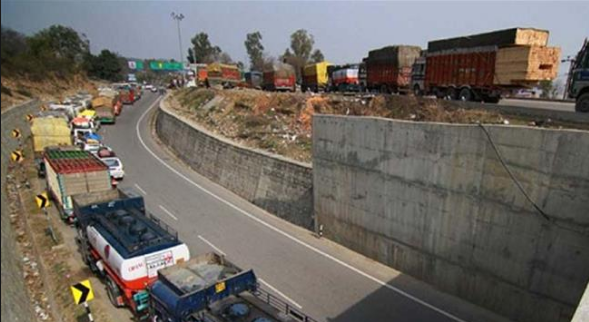Despite claims of strict implementation of rules and regulations and improvements in road infrastructure, the Jammu region has witnessed recurring major accidents resulting in significant loss of life. Despite the implementation of new road design techniques, certain accidents continue to occur, leading to numerous fatalities that could have been prevented.
As expected, the Committee of Experts, formed as per the directions of the High Court of Jammu and Kashmir and Ladakh has identified several causes for the rise in road accidents on the Batote-Doda-Kishtwar National Highway, which included reckless driving, the use of outdated vehicles, and driver fatigue as major factors contributing to the accidents. The Committee of Experts has now decided to conduct a joint inspection of the Doda-Khellani-Kishtwar road before submitting its final recommendations to the Government.
There are multiple factors, right from under-repair highways, numerous black spots on highways, negligence on the part of traffic police and general police in checking the condition of vehicles, and driving habits. All these require a multipronged approach from all concerned departments instead of singling out one specific root cause. NHIDCL and PWD (R&B) have the maintenance contract and are expected to work on the installation of safety equipment such as metallic crash barriers, delineators, and road studs at identified black spots and sharp curves. Certain portions of the highway are still without metallic crash barriers.
Keeping in view the recommendations by expert committee, the administration has to put a multipronged strategy in place as various departments are involved. The respective departments have to undertake a systematic assessment of the identified locations and proceed with the installation of safety measures after further joint assessment. Regular inspections and maintenance of road infrastructure should also be conducted to ensure their effectiveness. Strict enforcement of speed limits, breath alcohol tests, and other traffic regulations is crucial. This requires deploying an adequate number of trained traffic police personnel and equipping them with necessary resources such as breath analyzers and speed detection devices, which are not seen regularly on highways. Implementing periodic retesting of commercial drivers’ driving skills is essential, and immediate cancellation of licences should be enforced for those who test positive for drugs. Such measures play a crucial role in enhancing road safety. There are elaborative recommendations by an expert committee for launching mass awareness campaigns on road safety. The concept is to train minds to adhere to set rules and regulations.
There is a general tendency to sell old vehicles in rural areas that are not at all roadworthy for hilly terrain. The problem is further complicated by the worn-out tyres’ inability to provide enough grip, especially during rainy weather, which results in often lethal accidents. A proper check should ensure that such vehicles are not allowed on hilly roads. The nexus of getting these vehicles to pass safety tests should be busted immediately.
The scope of improvement and implementation of new ideas is vast, even beyond the recommendations of the expert committee. Establishing a system for monitoring and evaluating the progress of implementation is crucial. Mere passing on the instructions never works well as in the past. One way can be by establishing a dedicated task force responsible for monitoring progress weekly. By creating a specialised team, the Government can ensure that the recommendations are being implemented according to the set timelines and that necessary actions are being taken promptly. Regular monitoring will enable the task force to identify any potential gaps or challenges in implementation and take corrective measures accordingly. Regular assessment of the impact of the recommendations, gathering feedback from stakeholders and the public, and making necessary adjustments based on the findings will ensure continuous improvement in road safety measures. Accountability is the most important of all. Human lives are too precious; the committee of experts has done its work, and now the onus lies with the concerned departments to work on it.
Trending Now
E-Paper


